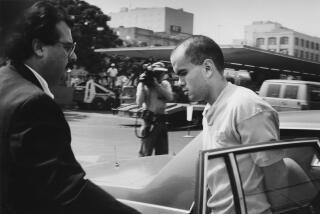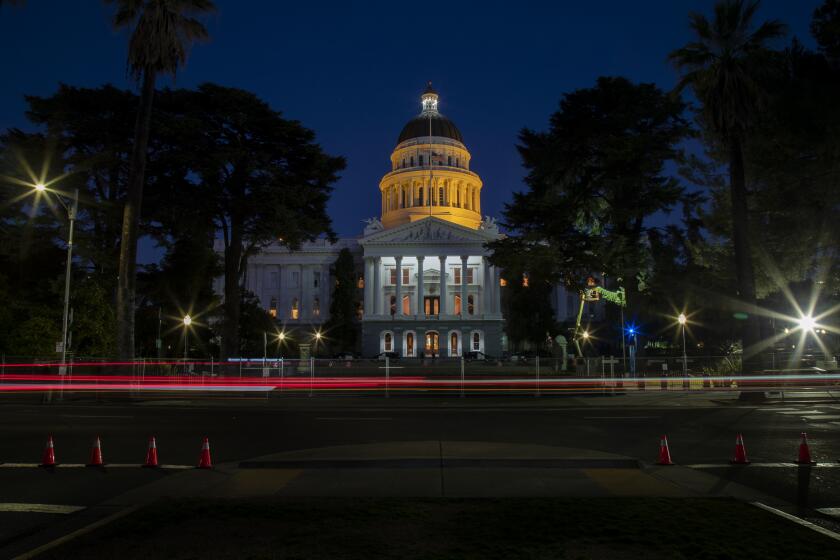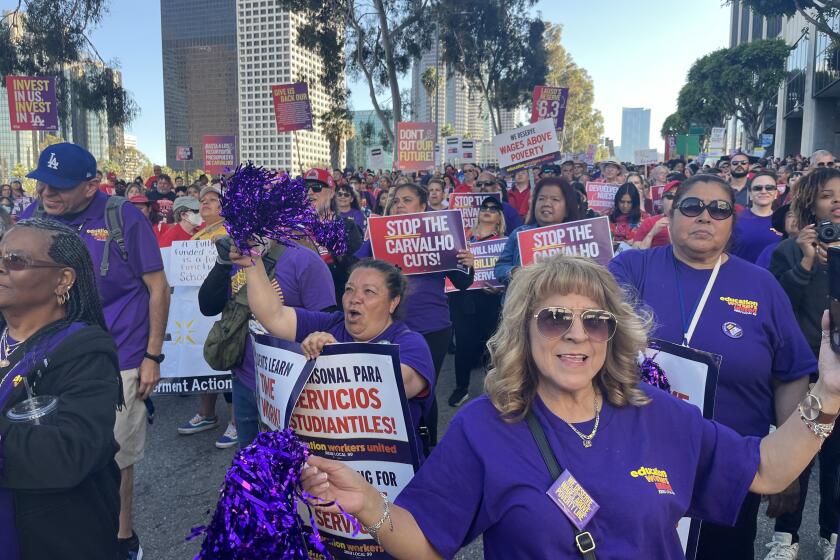Maxicare Balks at Treating Some on Medi-Cal : Illegal Drug Use by Patients Moves Firm to Stop Coverage in S.F. Bay Area
Los Angeles-based Maxicare Health Plans said Monday that it has told state health officials it will stop treating Medi-Cal patients in the San Francisco Bay Area on Jan. 1 because of the high costs associated with caring for Medi-Cal recipients who use illegal drugs.
Maxicare, one of the state’s largest health maintenance organizations, said the $72- to $630-a-month payments it receives from the state to care for Medi-Cal patients are insufficient for the growing number of expectant mothers covered under the plan who suffer medical complications due to illegal drug use, principally cocaine.
Maxicare of Northern California is one of a handful of health-care providers in California that contract with the state to provide prepaid medical services for about 250,000 of the state’s 3 million poor or disabled who receive subsidized medical care under the state’s $5-billion-a-year Medi-Cal program. Medi-Cal is the California name for the federal Medicaid program.
“In the month of October, we had 12 crack- (cocaine) and cocaine-induced deliveries out of about 30 (total) deliveries that month,” said Henry Loubet, vice president and executive director of Maxicare of Northern California. “A normal delivery costs about $2,000, but some of these crack-induced deliveries can run as high as $150,000.”
The problem has hit Maxicare most severely because it is the only HMO that serves Medi-Cal patients in the Oakland area, where police and health officials say cocaine abuse has become a major problem. Maxicare does not serve Medi-Cal patients in Southern California.
Although Maxicare has said it will terminate its Medi-Cal contract at the end of the year, state officials say the company has agreed to consider modifying the current contract to address the drug problem.
“We are trying to adjust for Maxicare’s risks,” said Alan L. Stolmack, chief of the Department of Health Services section that monitors the Medi-Cal HMO program. He said the proposal under discussion would pay Maxicare more for complicated pregnancies but that the HMO would receive less than it does now for other services.
If the number of complicated pregnancies increases, Maxicare would gain; if such pregnancies fall, the HMO would lose money, Stolmack said.
“The issue with Maxicare is really the bottom line,” Stolmack observed. “They are looking at costs and revenue and finding that their revenue doesn’t meet their costs.”
Maxicare and other HMOs have long complained that the Medi-Cal program does not pay enough to cover the actual costs of treatment because the poor and disabled tend to utilize services more heavily than others.
For Maxicare, the financial crunch has been compounded because of its acquisition in 1986 of the ailing HealthAmerica HMO chain. Last year, Maxicare lost $256 million on revenue of $1.8 billion. Ironically, HealthAmerica once operated the three Oakland clinics that are now the focus of Maxicare’s current woes.
“This is a continuing issue,” said James B. Hollen, associate of the consulting firm McKinsey & Co. in Los Angeles. “The HMOs are always battling with the state to get higher reimbursements. With Medi-Cal patients, what tends to happen is that they don’t get the care they need early enough, so that when they do get care, it tends to be more expensive.”
More to Read
Start your day right
Sign up for Essential California for news, features and recommendations from the L.A. Times and beyond in your inbox six days a week.
You may occasionally receive promotional content from the Los Angeles Times.






